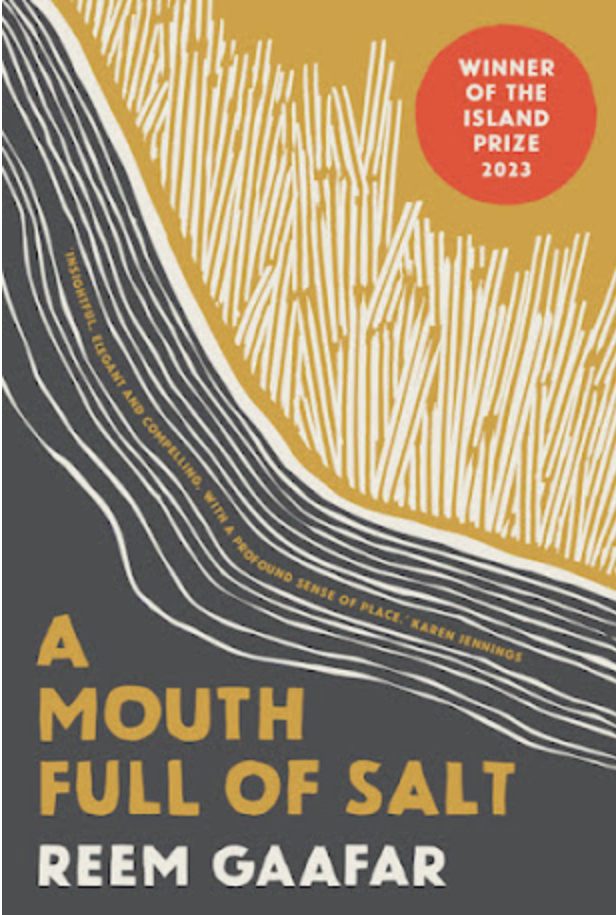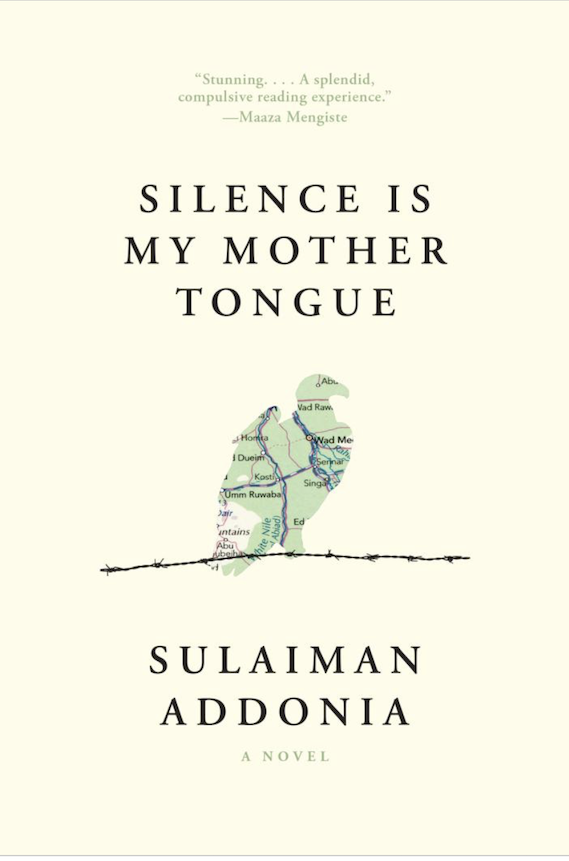A Mouthful of Salt by Reem Gaafar
and
Silence is My Mother Tongue by Sulaiman Addonia
In these disheveled times, work from another troubled part of the world, sad to say, may be met with weary hesitation. What? Another tale of woe? Indeed, in the priviledged West, immigrants from these places are so often met with hostility; the horrors and genocides from which they fled, with studied indifference.
The author of Mouthful of Salt—which Wikipedia informs us, refers to a Sudanese proverb that evokes the “taste left in one’s mouth after a great loss”—is Sudanese by origin but has spent most of her life between New Zealand, Oman, and Sudan as well as working in the Arab Emirates and Canada. To paraphrase an interview of the author in TINT Journal, Reem Gaafar worked as a physician, then transitioned to public health and health policy as well as making some documentary films. Prior to publishing her novel—her first— she published several of her works in various journals. Should she have gone to either the UK and the US, would today’s looming and present xenophobia have sent her off to a far more miserable fate?
Interestingly, Mouthful of Salt is written in English, and while references to certain practices in Islam and in Sudanese culture appear in their original, though rendered in the roman alphabet, and which it would do the readers from elsewhere to look up, Gaafar’s English is both simple and elegant.
The current situation in Sudan, is another full-blown human rights crisis, with civilian caught in the middle of terrible conflict, and suffering near genocidal conditions because of it. The growing hardships are alluded to in Gaafar’s book–shortages of essential goods, etc. But the conflict itself is not the main focus. Rather, the book opens with the search for a boy who appears to have disappeared and presumed to have been carried away by the river, the Blue Nile, so dominant in the part of northern Sudan where the story is located. The narrator, poised to be married—all such unions seem to be arranged in that world—inveighs against the “superstitious nonsense” of presuming that a strange woman spirit put a spell on the missing boy.
However, the “great loss” referred to in the above proverb, not only refers to the boy presumed to have drowned in the river, as many before him have; not only to the grief returned to the narrator’s mother, remembering her own son’s similar drowning; but also as Fatima, the narrator, describes one character in particular: “Her husband died such a horrible death, her house fell down in the last rainy season and now all her animals are dead from Allah knows what. She’s been left with nothing but a mouth full of salt. I wouldn’t be surprised if they believed she was cursed.“
Fatima is quite alone in her attempts to be more of a rational person, and vainly yearns for education, rather than the prison of an arranged matrimony. And here we have it: the dilemma of women not only in various traditional societies, but, indeed, also in those ensnared in other groups who hold fundamentalist beliefs.
Further, what does one do when violence comes to the place you have fled to? Flee, alas, some more; in the case of Mouthful of Salt, that sends Fatima to Sudan, and we know where that leads to…
Of the author of Silence is My Mother Tongue, also originally written in English, Goodreads has told us that, Sulaiman S.M.Y. Addonia is an author residing in London. He was born as the son of an Eritrean mother and an Ethiopian father in Eritrea. He spent his early life in a refugee camp in Sudan, following the Om Hajar massacre in 1976. In his early teens, he lived and studied in Saudi Arabia. He sought the asylum with his brother in London in 1990, and studied at the University College London. (accessed 13/9/25)
Had Sulaiman arrived to the UK by boat, if he did not drown, he could well have been sent back or, if an asylum seeker in the US, criminalized and sent off to some cruel detention camp. I should add that Goodread’s information is out of date: Addonia now lives in Brussels and, among other things, he has “launched a creative writing academy for refugees and asylum seekers.” (287)
But I digress.
Addonia’s Mother Tongue also addresses similar themes to Mouhful of Salt, but Mother Tongue is set in a refugee camp in Eritrea, geographically sharing a border with Sudan to it’s west and, Ethiopia to its south. Such divisions have also been contentious for some time. During the ongoing struggle for Eritrean independence from Ethiopia, in 1976 the Om Hajar massacre was carried out by the Ethiopian military as part of its campaign to destroy Eritrean villages. Not until 2006 were thr remains of those massacred in OmHajar retrieved. Refugees, obviously, fled to wherever they could find some measure of safety. And here we have the plight of those who are refugees, when violence again finds them.
In the case of Saba, Mother Tongue‘s main protagonist, coming into a refugee camp is narratively muted at first: yes, the regret about the loss of the accoutrements of home, grabbing only the minimum of what one thinks is indispensible to take, as opposed to the later arrival of obviously rich refugees with more, incongruously being welcoming to the camp as it it were a village as opposed to a place of desperate refuge… She is accompanied by her brother, who is mute (from birth) and they are forced to share sleeping space, though there is not so much of a hint of impropriety between them. Another member of the camp sets up a “television”—really an empty box with puppets performing, sadly not exactly appreciated by others coming to “watch” TV. Her mother is in another, for lack of a better term, hut and rather distant emotionally. Saba takes on work for the more affluent members of the camp, doing household chores, and a far cry from what her prior education had aimed for her to do.
And, indeed, we are faced with the same dilemma as in Mouthful of Salt: two young women who show educational promise, yearning to go on, but hampered by the conservative beliefs of their culture and looming arranged marriages. In fact, both authors of these books are not hesitant to treat these themes with disapproval, that misogynistic Achilles heel of their traditional society’s belief system. Addonia is a bit awkward in the scenes regarding Saba’s sexuality (so far only masturbation) and Gaafar does not address the subject with regard to her main character, Fatima.
And, in the end of Mother Tongue, it is the same story: leaving approaching violence but seeking refuge, in this case, in Sudan. More’s the pity.
Both books make absolutely vital reading.
— Bronwyn Mills


